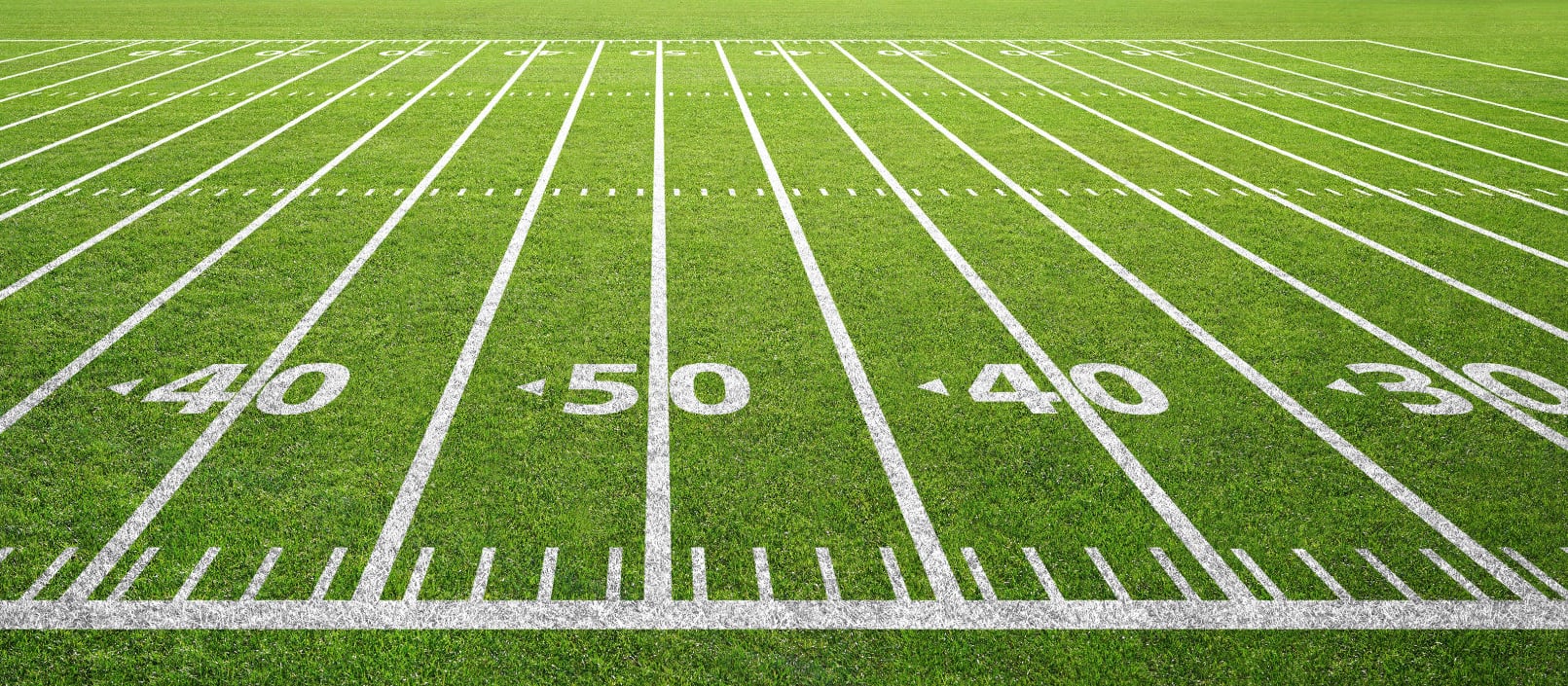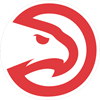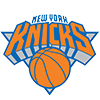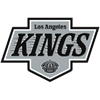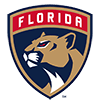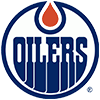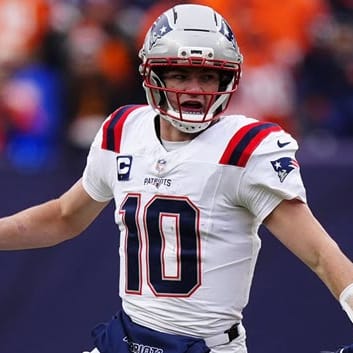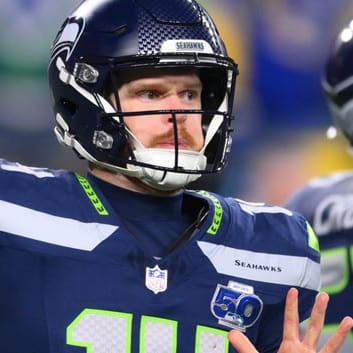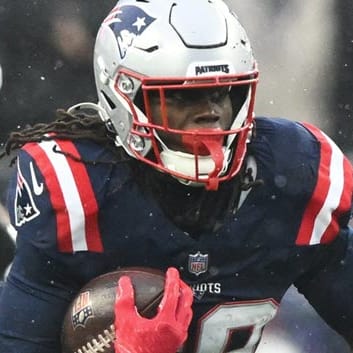Winning money by betting NFL games against the spread is hard. For starters, you need to beat the vig (or rake), which is typically an extra 10 percent on losses. Put differently, you'd need to risk $110 to win $100. That means you have to win 52.38 percent of your bets just to break even.
To understand the math behind this, imagine you made 100 $1 bets. If you won 52 and lost 48 (52 percent), you'd be up $52 and down $52.80 ($48 + $4.80) for a net loss of 80 cents. If you won 53 and lost 47, you'd net a profit of $1.30.
Having to win nearly 52.5 percent of the time might not sound daunting – after all, while Vegas sets the line, you get to pick the team and make bets of any size (within reason). But the NFL is the most popular sport on which to wager, so while you might get an edge knowing more than anyone about a small college basketball conference, it's unlikely you'll unearth something about an NFL game for which oddsmakers have not accounted. The notion that Denver's corners will shut down Kansas City's receivers is, therefore, not likely to be a good reason to bet on Denver, as the quality of both offenses and defenses is baked into the spread. Similarly, if both Broncos cornerbacks are injured, that's not a reason to bet the Chiefs because that too is priced into the spread. To use information like that as the basis of your bet is usually to double-count it.
So if we're going to crack this difficult nut, what's the best way to go about it? I'll offer a few ideas, with the caveat that there's no magic formula to winning any more than there's a magic formula to picking individual stocks or predicting weather 10 days out.
Pick Your Spots
It's a hazard of the job, but I have to pick every single NFL game in my weekly "Beating the Book" column that runs on RotoWire during the season. You, however, should not. Even the most profitable pros concede they would have a hard time consistently beating the rake if they had to pick 256 games a year. As an individual bettor you should play no more than five games per week and usually fewer than that. And if there's a week where nothing jumps out at you, pass. The sports book isn't going anywhere.
Understand Baseline Performance
There are certain stats that give us a sense of a team's baseline performance. Net yards per play is a good one, and net yards per passing attempt is also useful. Metrics like these remove the turnover/special teams luck and give a rough idea of how well a team actually has played. Or you can use a site like massey-peabody.com that sets the baselines for you. Either way, you should have an idea of how good a team has been and use that as a starting point for how many points it should be giving or receiving against various opponents.
It's important to remember, however, even setting aside lucky bounces, performance often fluctuates around the baseline for any number of reasons. The baseline is merely the average output one would expect based on a team's past performance. Moreover, the baseline occasionally moves, i.e., a team diverges from its past performance permanently and sets a new level.
We saw this during the 2007 and 2011 New York Giants playoff runs. They were big underdogs most of the way because the oddsmakers were still viewing them as the team that barely made the playoffs. We also saw this with the 2012 Ravens, who were nine-point underdogs in New England and handled the Patriots fairly easily before winning the Super Bowl.
One way to get good value is to spot a baseline move before the market does, e.g., to take the Ravens plus-nine when the line should have been closer to three.
This is easier said than done – if it were obvious, the market would have already adjusted to the new baseline. But occasionally you'll sense a team is developing – often it's a young quarterback turning a corner, or a defense playing more cohesively as a unit – and Vegas will be slow to attribute the improved performance to permanent growth. Another is to see through an apparent change in baseline for the mirage that it is, e.g., if one team wins a few games by big margins, but the wins were largely turnover driven.
In any event, this concept is an important one, and you should constantly wonder whether Vegas has been too slow to adjust to a team's new level of performance, or the opposite – whether the market is too quick to credit a team on a hot streak.
Understand the Market
Vegas sets lines based both on statistical metrics and what it takes to be public perception. Bettors influence those lines by placing wagers. For example, the Packers at the Jaguars in Week 1 might open at 4.5, and after 86 percent of the public bets on Green Bay the oddsmakers might move it to 5 or 5.5 to encourage some betting on Jacksonville. Vegas doesn't want to take the risk of losing to everyone if the Packers roll. By raising the number and attracting bettors on the other side, it mitigates that risk. You can look at line movement on sites like SportsInsights.com to see the percentage of bets on each side.
One interesting case is when 86 percent of the bettors are on the Packers, but the line moves down to 4 or 3.5. That could mean someone (a professional gambler or "sharp") placed a big bet on the Jaguars, and the book not only needs to offset that by attracting more small bets on the Packers but might also be willing to take lopsided action from the public if it believes the public is on the wrong side.
By understanding how the market works, you can occasionally spot cases where the public is most likely on one side and the sharps the other – and bet with the sharps.
Trust Your Observations
While most of us enjoy watching NFL games, few of us are professional scouts or dedicated tape studiers. Fewer still have detailed knowledge of every team's offensive line, special teams, defensive schemes and coaching tendencies. So, it's important we're aware of our limitations as handicappers – and that's even before taking into account wild swings of dumb luck every Sunday.
Nonetheless, everything you observe directly is something that actually happened, i.e., it's data. If observing a team – as opposed to hearing the canned narratives of the announcers, pre-game shows or especially touts selling picks – you form an impression about it, take it seriously. It might not be actionable right away, and subsequent observations might negate it, but it's valuable. In fact, it might be an inkling a team's baseline is moving before it is obvious to everyone else.
Don't Ever Pay for Picks
If someone purports to sell you winners, he's being dishonest. If he could consistently pick winners at 55 percent or higher, why wouldn't he just bet the games himself? Either he's so good he can guarantee a profit, or he can't. If it's the former, he wouldn't be giving you the picks, and if it's the latter you don't want them. And while it's hard enough to beat the vig, it's nearly impossible when you add the cost of picks.
Since 1999, Liss is 2,182-2,014 (52 percent), not including ties, picking every NFL game in his weekly "Beating the Book" column on RotoWire.
This article appears in the 2016 RotoWire Fantasy Football magazine. Order the magazine.


